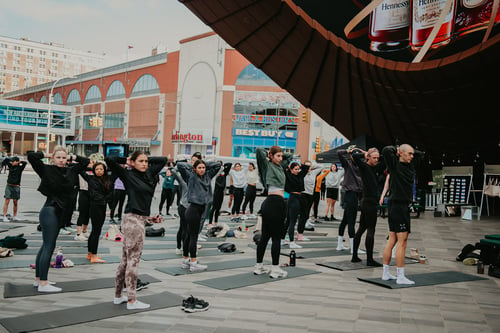Your Guide to Finding the Best Physical Therapist for Your Needs
January 16, 2024
Choosing the right provider comes down to more than just convenience. Learn what makes a PT the right person to get to the root of your issues, and why MOTIVNY's standard of care stands above the rest.
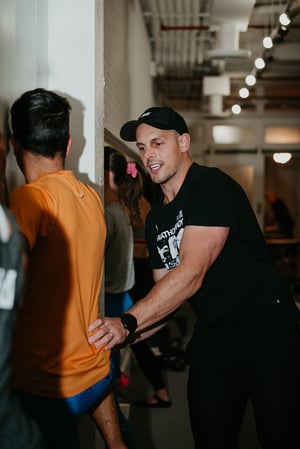
Understanding The Role of a Physical Therapist
Before selecting a physical therapist, it's crucial to understand their role in your recovery process. They use various techniques and exercises to improve mobility, reduce pain, and enhance function. By understanding their role, you can have realistic expectations of what a physical therapist can help you achieve.
Oftentimes we find that clients arrive from previous Physical Therapy experiences having a lackluster experience because they either didn't know what they needed as an individual, or came across a practitioner providing non-specific care plans or assessment. At MOTIVNY we think every new patient interaction requires the following interactions:
- In depth history analysis - Does the therapist spend a substantial amount of time analyzing your history and discussing it with you? This includes prior to the assessment as well as during and after some portions of the assessment have been completed. This shows they're constantly listening and updating their treatment plans for you
- Movement observational assessment - Does the therapist watch you move, ideally as specifically as possible related to your activity? If you're a runner they should want to see you run at some point in the care plan. We know that movement strategies and habits can greatly affect pain, so if we aren't observing what strategy is being used then we aren't able to recommend an alternative that would be more successful
- Manual assessment - One of the great advantages of a Physical Therapist over other healthcare providers is that we are highly trained (or can seek further education) in manual medicine. Your joints, ligaments, and muscles are all adapted to how YOU specifically use your body. Often these details are difficult to observe strictly by observing movement. It is our opinion that if the therapist doesn't use some amount of manual assessment and treatment to gather information, then they are leaving great opportunity on the table
- Lifestyle advice - While not all therapists have experience coaching in specific sport, they should demonstrate a capability to understand what types of stress you are placing on your body and how it relates to your injury. Seek someone who does this in a conversational way that helps you learn about your body rather than strictly telling you what not to do
- Homework and education - Therapists should give you exercises that are specifically tailored to your needs. You should not get the impression that you received the same exercises as every other patient with knee pain, because your case, and your life, demonstrate unique challenges. Your homework program should take this into account and vary the specificity, volume, intensity, and other attributes as you need them
Consider Location and Accessibility
If you're a busy New Yorker (and we know you are) then you obviously prioritize your time. Not all of us have flexible schedules that allow lengthy commutes, or the ability to work remotely. Selecting a facility that suits your schedule is a must.
Additionally, depending on your condition, you may need to prioritize proximity in your choice of provider. While we welcome all patients, we of course understand when people on crutches traveling around NYC have a harder time getting to us frequently. If you're not able to get to the clinic often enough as recommended by the provider, then it may be the schedule, and not the care that are keeping you from your ideal results.
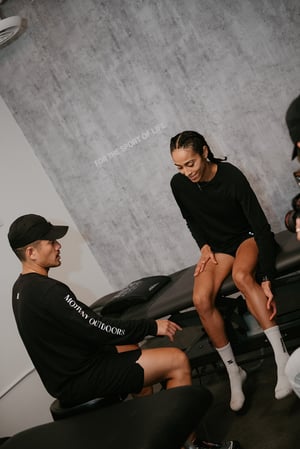
Researching and Evaluating Potential Therapists
- Time with the provider - We believe the standard of care should be 60 minutes, or longer for ALL appointments. If you're getting 15 minutes of the provider's time, expect to get less education, and likely less results
- In-network vs. Out-of-network - In-network providers are restricted by reimbursement models to see a large volume of patients. If you need individualized attention, this is not conducive to your needs. Investing in an Out-of-network practice will give enough time and space for the therapist to focus on your unique attributes
- Experience - New therapists have fewer reps evaluating complex conditions. If you have typical injury presentation they may be adequately prepared, but if not you'd likely benefit from seeing someone with more years of experience. At MOTIVNY we provide our less experienced therapists with a mentor who is available to help assess their client further
- Credentials - All DPT's (Doctors of Physical Therapy) have gone through a lot of education. Aside from that 3-year Doctorate, you want to work with someone who is certified in treatments you think you'd benefit from (i.e. manual therapy, kettlebells, running analysis)
- Responsiveness and engagement - We believe in building relationships. MOTIVNY therapists strive to make themselves available via email or chat for further feedback (as time allows). We want patients to feel like our team is part of their life, not just an appointment in the calendar
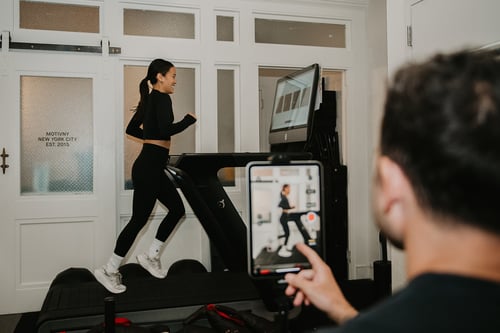
Use of Modern Treatment Techniques and Advanced Approaches
At MOTIVNY we pride ourselves on continuing to push the envelope on patient care. We've integrated more technology over the years as it has become more accessible, and will utilize tools like Video Analysis, Metabolic testing, VALD ForceDecks or Dynamometers to help get objective data into the approach.
Beyond just tech, we hold weekly meetings to update and educate our staff on research findings in the industry, practice hands-on skills, and workshop difficult patient cases. If you get the impression that your therapist isn't part of a team that is always learning...it' s likely they could fall into patterns of treatment instead of treating each client as a unique case.
So much new information has pushed the Physical Therapy industry forward, and unfortunately many clinics and practitioners are slow to adapt to the modern methodology. If a clinician or their support staff hands you the infamous "sheet of exercises" with cartoon drawings of the same movements for everyone...Run, and run fast.
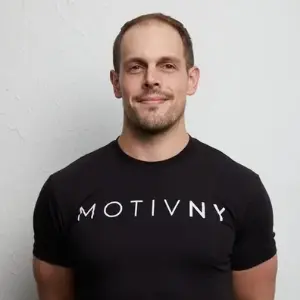
LUKE GREENBERG
Manual Medicine, Kettlebells and Golf Training, Team Dad
